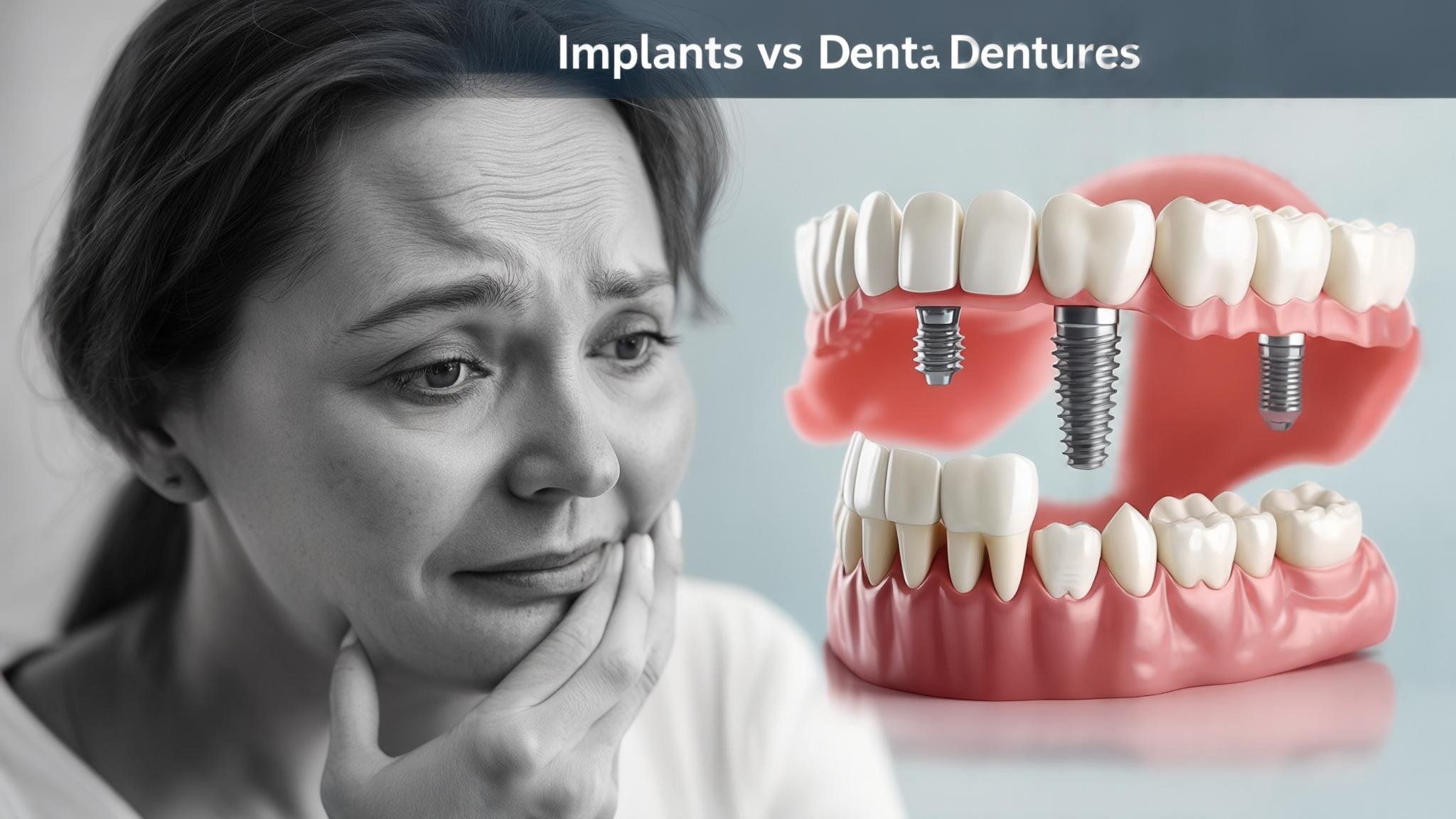Introduction
When it comes to replacing missing teeth, two of the most common options are dental implants and dentures. Dental implants are artificial tooth roots, usually made of titanium, that are surgically placed into the jawbone to support a replacement tooth or bridge. Dentures, on the other hand, are removable appliances that can replace missing teeth and surrounding tissues. Choosing the right option is crucial for your oral health, comfort, and confidence.
This article aims to provide a detailed comparison between dental implants and dentures, helping you make an informed decision based on various factors.
Overview of Dental Implants
Description of Dental Implants
Dental implants consist of three main components:
- Implant Post: A metal post that is surgically inserted into the jawbone.
- Abutment: A connector placed on top of the implant post to hold the replacement tooth.
- Crown: The visible part of the tooth that is custom-made to match your natural teeth.
The procedure for placing dental implants involves multiple steps, including surgery to place the implant post, a healing period for the bone to integrate with the implant, and finally, attaching the abutment and crown.
Benefits of Dental Implants
Dental implants offer several advantages:
- Stability and Permanence: Once integrated, implants function like natural teeth, providing a stable and permanent solution.
- Natural Appearance and Function: Implants look and feel like real teeth, allowing for natural speech and eating.
- Bone Preservation: Implants stimulate the jawbone, preventing bone loss and maintaining facial structure.
Potential Drawbacks
Despite their benefits, dental implants have some downsides:
- Cost: Implants can be expensive, especially if multiple teeth need replacement.
- Surgical Procedure: Implant placement requires surgery, which may not be suitable for everyone.
- Time for Healing and Integration: The process can take several months, as the bone needs time to heal around the implant.
Overview of Dentures
Description of Dentures
Dentures are available in two main types:
- Complete Dentures: Used when all teeth are missing.
- Partial Dentures: Used when some natural teeth remain.
Dentures are typically made from acrylic resin, sometimes combined with metal for structural support.
Benefits of Dentures
Dentures offer their own set of advantages:
- Lower Initial Cost: Generally more affordable than implants.
- Non-Invasive Procedure: No surgery is required to fit dentures.
- Immediate Availability: Dentures can be made relatively quickly, providing a swift solution for tooth loss.
Potential Drawbacks
However, dentures also have their challenges:
- Stability Issues: Dentures may shift or slip, affecting speech and eating.
- Maintenance and Care Requirements: Regular cleaning and adjustments are necessary.
- Impact on Bone Density: Without stimulation from tooth roots, the jawbone may shrink over time.
Comparison of Dental Implants and Dentures
Effectiveness in Restoring Function
- Chewing and Speaking Capabilities: Implants offer superior stability, making them better for chewing and speaking. Dentures may require adhesives to stay in place.
- Comfort During Use: Implants feel more like natural teeth, while dentures might cause irritation or discomfort initially.
Aesthetic Outcomes
- Natural Look and Feel: Implants closely mimic natural teeth, whereas dentures may look less natural over time.
- Impact on Facial Structure: Implants help maintain bone structure, while dentures might lead to changes in facial appearance as bone loss occurs.
Longevity and Durability
- Lifespan: Implants can last a lifetime with proper care, while dentures may need replacement every 5-8 years.
- Maintenance: Implants require regular dental check-ups, whereas dentures need daily cleaning and occasional adjustments.
Cost Considerations
- Initial Costs: Implants are typically more expensive upfront.
- Long-Term Expenses: Dentures may incur ongoing costs for maintenance and replacement, potentially adding up over time.
Patient Lifestyle and Preferences
- Activity Level and Health Considerations: Active individuals may prefer the stability of implants. Health conditions may affect suitability for implants.
- Personal Comfort with Dental Devices: Some may find dentures cumbersome, while others might appreciate their non-invasive nature.
Conclusion
In summary, both dental implants and dentures have their unique benefits and drawbacks. Dental implants offer a more permanent and natural-looking solution, but at a higher cost and with a longer treatment time. Dentures are more affordable and quicker to obtain but may require more maintenance and adjustments.
Consulting with a dental professional is crucial to determine the best option for your specific needs and circumstances. Ultimately, the choice between dental implants and dentures should be based on a thorough understanding of each option and how it aligns with your lifestyle and health goals.
References
- American Dental Association on Dental Implants
- Mayo Clinic on Dentures
- Additional reading materials are available at your local library or online dental health resources.

